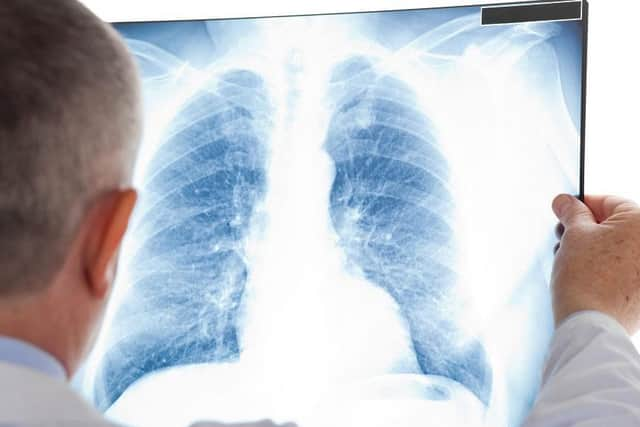Cancer referral backlog in Wigan hospitals
and live on Freeview channel 276
The number of people seen for suspected cancer at Wigan hospitals following an urgent GP referral has plummeted by more than half compared to pre-coronavirus levels.
Macmillan Cancer Support says many people are still avoiding critical care due to Covid-19 and is calling for an urgent recovery plan to deal with the backlog once thousands of “invisible patients” come forward.
Advertisement
Hide AdAdvertisement
Hide AdNHS England data shows 570 people were seen by a specialist at Wigan following an urgent GP referral for suspected cancer in May.


That was 19 per cent more than in April but this was still the lowest figure for the month since 2015, and a massive 52 per cent drop compared to May last year.
Across England the figure rose far more sharply between April and May - 34 per cent - while the difference between figures in Mays 2019 and 2020 was also slightly less pronounced than Wigan’s at 47 per cent.
Wigan health chiefs admit their statistics are low and urged patients with worrying signs or symptoms to seek treatment urgently so that further potentially precious time is not lost.
Advertisement
Hide AdAdvertisement
Hide AdMacmillan’s Sara Bainbridge said: “We know that many will have been afraid to come forward with symptoms for fear of being a burden on the NHS or catching coronavirus.
“As thousands of these ‘invisible patients’ are diagnosed with cancer and begin their treatment, our cancer services face being under more pressure than ever before.”
Ms Bainbridge said Chancellor Rishi Sunak’s recent mini-budget, in which he announced fresh measures to tackle the coronavirus crisis, was a missed opportunity to ensure cancer “does not become the forgotten ‘C’ in this pandemic”.
She added: “It is absolutely critical that the Government commit to addressing the backlog in cancer treatment, including the staffing and resources needed, to deliver the care that many are anxiously waiting for.”
Advertisement
Hide AdAdvertisement
Hide AdAt Wrightington, Wigan and Leigh (WWL) Trust, the number of people starting treatment following an urgent GP referral for suspected cancer fell by 57 per cent in May compared to last year.
Nationally the figure dropped far less - by 37 per cent.
An NHS spokeswoman said: “Throughout the Covid pandemic, hospitals have successfully and quickly cared for patients urgently referred by their GP, with over 94 per cent of such urgent cancer referrals being investigated within 14 days, and over 65,000 people starting treatment for cancer throughout the coronavirus pandemic.
“Urgent referrals are now increasing again as people come forward for a cancer check, and anyone who is concerned about a possible symptom should contact their GP and come forward for a check-up.”
A WWL spokesperson said: “We did see a decline in two-week wait referrals throughout April and in to May due to the effects of the Covid-19 pandemic.
Advertisement
Hide AdAdvertisement
Hide Ad“Lockdown and social distancing had discouraged people from accessing their GP and the A&E department, due to their concerns about contracting the virus, however, since the end of May WWL has seen a gradual increase in attendees with some patients now feeling more confident to seek GP advice as measures have eased.
“The Trust would continue to encourage those with any worrying signs or symptoms to not delay in seeking help. Extra measures have been put in place to reassure our patients and the Cancer Services department is continuing to work together to give the best service to our patients.
“WWL has also continued to meet the 14-day compliance and has kept as many diagnostics as possible going, based on priority and in the best interest of the patients, and, while there may be a significant backlog nationally, NHS Trusts, Cancer Alliances and the independent sector are working together to find ways of increasing our capacity to address this.”